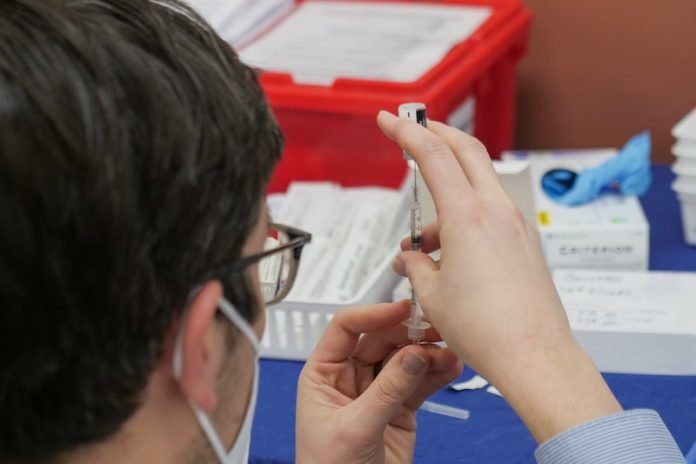
In a new study from McMaster University, researchers found why AstraZeneca’s COVID-19 vaccine may cause life-threatening blood clots in very rare cases.
They found the AstraZeneca vaccine appears to cause certain people to develop antibodies that target a protein in the human body called platelet factor 4 (PF4), which spurs platelets into action and activates a clotting cascade.
It’s an antibody that’s somehow triggered by the vaccine, and in some circumstances, this results in unusual blood clotting.
The phenomenon is similar to a rare drug side effect caused by the blood thinner heparin, called heparin-induced thrombocytopenia.
The finding could be key to the global rollout of the AstraZeneca vaccine, helping develop effective treatments for the side effect and providing clues on how to refine the vaccine and fix the problem.
The vaccine’s clotting side effects are so rare that the European Medicines Agency (EMA) and the UK’s Medicines and Healthcare Products Regulatory Agency both have decided to keep it on the market, concluding that its benefits outweigh the risks, AstraZeneca noted in a statement.
However, the vaccine’s label will be updated to list blood clotting as an extremely rare potential side effect.
As of April 4, the EMA had received reports of 169 cases of cerebral clotting and 53 cases of abdominal clotting out of about 34 million AstraZeneca doses administered throughout Europe
In the United Kingdom, 19 people have died from serious blood clots related to the vaccine.
Two of the three COVID-19 vaccines being distributed in the United States—Pfizer and Moderna—have not shown any such side effects.
But on Friday, European drug regulators said they are reviewing reports of rare blood clots in four people who received Johnson & Johnson’s COVID-19 vaccine.
The current findings may help guide the treatment of people who develop symptoms similar to heparin-induced thrombocytopenia.
Doctors treat autoimmune heparin-induced thrombocytopenia by administering high doses of IV immunoglobulin, essentially flooding the body with healthy antibodies to drown out the signal produced by the drug, according to the team.
The study is published in the New England Journal of Medicine. One author of the study is Dr. Theodore Warkentin.
Copyright © 2021 Knowridge Science Report. All rights reserved.



